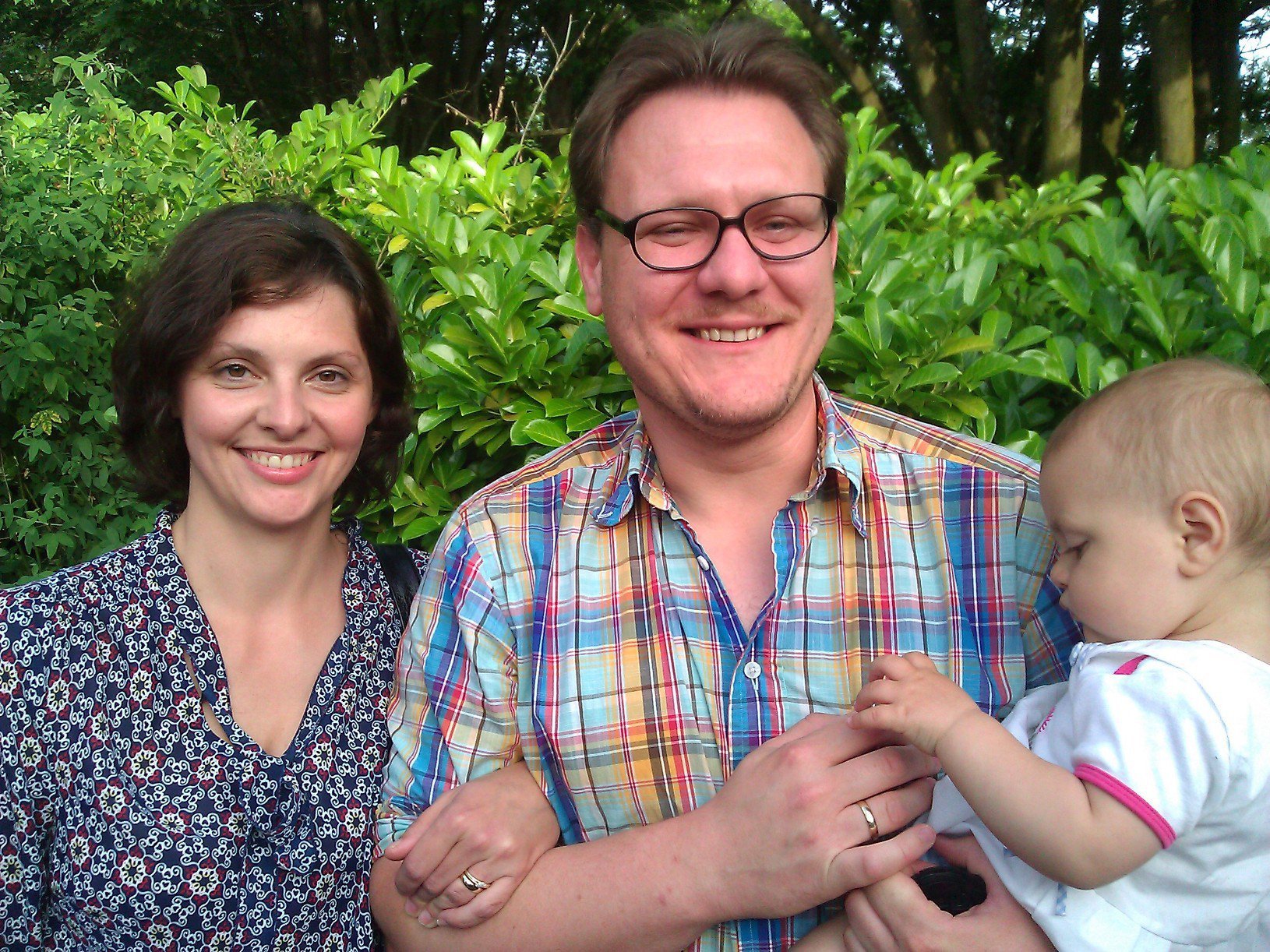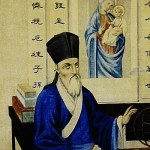This is a guest post by Dr. Justin Tse of the University of Washington.
==================================================
On October 24, 2014, a politically conservative blogger, Stephen Herreid, performed an Internet hit job on my friend and colleague, Dr. Artur Rosman. He might as well have tried to character assassinate Rabelais himself. While taken to task by both Patheos Catholic’s Sam Rocha, the Mitralleuse’s J. Arthur Bloom (as quoted in Herreid’s response), and Rosman himself, Herreid has made no apologies. He has instead double-downed on his attack on Rosman. The attacks are serious, impugning Rosman’s character, circulating private conversations, and dragging his wife and children into the mix.
I want to understand why.
Here are the facts. Herreid attacked Rosman because of the latter’s piece on the church. It was a post that I may have had a hand in encouraging Rosman to publish. As careful readers of Rosman’s blog will see, I do occasionally provoke Rosman to write things, including his classic account of ‘Rabelaisian Catholicism‘ and his thoughts on Catholic and Protestant sex abuse scandals (to which I have responded both in concurrence and dissent). My provocations do not originate in an interest in getting the Catholic Church to start daycares for Rosman’s family. Instead, as in this case, I felt that he was channeling theological ethicist Stanley Hauerwas’s case for the church to truly be the church before having anything to say about abortion. That Rosman also summoned Pia de Solenni to his aid demonstrated the immense catholic common ground that could be had around ‘parish organizing in such a way that it would pretty much take over the functions of the extended family.’ Rosman has something important to say. In fact, I would dare say that his work on closet and cryptic Catholics has the potential to transform Catholic studies, arts, culture, and politics.
It’s been over two weeks, and while many of my friends, colleagues, acquaintances, and not-yet-acquaintances have lampooned Herreid, I wanted to see if I could put myself into Herreid’s shoes, to imagine with Herreid how his theological universe operated. This was especially because, as I shall show, if Herreid is convinced that Rosman has sinned by being a freeloader, Ignatius would say that Herreid’s attacks on Rosman’s private life would mean that Herreid has sinned just as much:
One should say nothing to defame another or to spread gossip, because if I make known a mortal sin which is not public knowledge, I sin mortally, and if the sin is venial, I sin venially, while if it is a defect, I show my own defect (Spiritual Exercises 41).
For someone to go so far out of his way as to sin (boldly!) with my friend – now that’s an imaginative solidarity I have to understand!
Here goes my attempt at online spiritual direction:
Because Herreid tries ‘not to assume the best of people,’ he read Rosman as primarily self-interested. Lampooning Rosman’s ‘progressive’ politics, Herreid first waxes nativist, rejecting the proposition as given by ‘say, an unemployed Polish Catholic immigrant who, instead of showing gratitude for his new home and the higher education he’s received here, fantasizes about establishing a centralized Church-State that punishes his American neighbors as “heretics” for daring to form a political order that isn’t obedient to the Vatican.’ Herreid doesn’t stop there: he then extends his excoriation to Rosman’s private life:
When Rosman pushes for the Church to “replace the family,” he plainly states that his purpose is to “take the pressure off” of families like his own, which currently has to deal with “all the problems I talked about yesterday.” Here he links to a previous post in which he laments his “unemployment” and “career confusion,” complains of “financial problems” and the “crappy” meals he makes for his kids, and vents his frustration with the daily “changing of diapers” required of him as a stay-at-home dad. He does not make any grateful mention of his hardworking wife, who earns the family bread and bears his children.
Appealing then to Aristotle’s rhetorical instructions for speakers to prove their ‘ethos’ (sound familiar?), Herreid argues that Rosman practices ‘a passive version of the aggressive virtue of selfishness,’ and he can prove this not only by appealing to one of Rosman’s public posts about unemployment, but by exposing the fact that Rosman has a ‘hardworking wife, who earns the family bread and bears his children.’ It turns out that Herreid knows this because there’s a mole. Herreid does not know that Rosman is a ‘freeloader’ simply because there is a Paypal donate button on his blog. He knows because:
When he agreed to an interview with a devoted fellow blogger, he was quick to mention he was “on the dole” and “could use [some] money right about now.” He also wasn’t above the interviewer making an additional solicitation on his behalf: “He is broke. If you have some money, don’t be a tight ass.”
The latter quote is from Owen White’s Ochlophobist interview, which incidentally praises Rosman’s skills as a bibliographer and a Catholic intellectual to the high heavens. God only knows the origins of the first private conversation, but because I like to assume the best of people, it doesn’t sound like Owen – in full disclosure, Rosman got me my own interview on the Ochlophobist, and I can only attest to the generosity of both.
If Herreid could have his way, he would be unraveling the private consensus. Rosman’s politics, Herreid posits, are inimical to the American body politic because they impose Rosman’s private, self-interested demands on public social morality. Imagining himself to be uniting the left and the right against Rosman’s Catholic politics, Herreid goes further still, trumpeting his conservative Catholic tribalism while railing against Rosman’s Catholic backwardness. In moves reminiscent of Paul Blanshard, he accuses Rosman of attempting to subject the American government to the Catholic Church with a tax burden. He insinuates that Rosman defends the Inquisition. He even suggests that Rosman is deflecting Catholic responsibility for the sex abuse crisis.
What kind of imagination, I wondered, drives this strange interpretation? Why does this blogger care so much about my friend’s private life? What is driving him to mask his muckraking behind the veneer of Aristotelian rhetoric?
For clarity, I turned to Herreid’s new defence. Writing against conservative writer J. Arthur Bloom and his demand that Herreid apologize to Rosman, Herreid takes both Bloom and Sam Rocha to task. In full disclosure, Rocha is also one of my friends and colleagues. I have yet to meet Bloom.
Alas, the new post is even more mystifying than the first. For someone who denounces Rosman’s non-denunciation of the Inquisition, this piece is even more inquisitorial. Submitting the ‘facts’ to a ‘candid world,’ Herreid provides a syllabus of errors: the immigration manifesto co-authored with Sam Rocha, a Facebook comment advocating open borders (on the share of the manifesto, of course), eight instances where Rosman condemns the free market capitalist order for creating economic inequalities, a critique of Rosman’s critique of ‘altar-and-throne’ arrangements in America, and a reiteration of the Inquisition defence. As Bloom notes, this Intercollegiate Studies Institute employee really behaves like the Grand Inquisitor.
Here is where the Ignatian paradox comes full circle. Acts of defamation come back to haunt the defamer: a mortal sin for a mortal sin, a venial sin for a venial sin, a defect for a defect. Herreid’s denunciation of Rosman’s non-denunciation of the Inquisition makes him the Grand Inquisitor. Herreid’s accusation of Rosman as an opportunist makes himself out to be an opportunist. Herreid achieves his charge that Rosman defends sex abuse by dragging Rosman’s wife and children into the mix.
But why? Why, by this Ignatian logic, would Herreid be willing to sacrifice his own soul? Why, if we use the magical secular legal word ‘defamation,’ would Herreid even put himself within range of a libel suit? Is it because, as some have said, that Herreid places his American conservatism before his Catholicism? Is it because he thinks that Rosman wouldn’t have the funds to hire a lawyer? Is it because he thinks all of Rosman’s would-be defenders are destined for the ideological re-education camps anyway?
Following Ignatius, we must understand Herreid’s imaginative universe. Like Ignatius, Bloom suggests that Herreid’s defamatory acts are rooted in his practice of ‘holy manliness,’ much like Ignatius’s spiritual journey from secular chivalric combativeness to interior discernment. With Ignatius, we can discern whether the Jesuits might call Herreid’s consolations as a self-proclaimed critical Catholic conservative are from ‘the good or the bad angel,’ as consolations might be given for ‘opposite purposes…so as to eventually draw the person into his own evil intention and wickedness’ (Spiritual Exercises 331).
As I read it, Herreid actually presents a fairly noble moral and political imagination. While committed to what he calls the ‘conservative Catholic tribe,’ he demonstrates that he is willing to be as critical of his own as well as of the ‘other’:
We will never be in complete agreement with our ideological opponents, and we shouldn’t exhaust ourselves trying to end all tribal enmities. But as long as we’re stuck with tribes, we should at least keep our own in order. Let’s hope for a future world where we’re ready to join even our enemies in denouncing what all of us should oppose: dishonesty, cynical self-interest, and ill will. We will be ready to confront these evils and take action against them. We will have the integrity to stand against them wherever they are found, especially when they crop up within our own parties.
Herreid’s actions are equally consistent with this chivalrous declaration. Though Rosman and Herreid are both Catholic, Herreid feels the need to expose his private life in order to purify the world from ‘dishonesty, cynical self-interest, and ill will.’ Though Bloom and Herreid are both political conservatives who revere Joe McCarthy, Herreid has an obligation to tell Bloom’s employer at the Daily Caller, Tucker Carlson, how his opinion editor is starting to break ranks from an ideology that concentrates wealth among the elite. While Rocha and Herreid seem to share a similar theological vision that the status quo of tribalism and dishonesty must be altered, Herreid posits a strict division between himself and Rocha on the grounds that Rocha must be a ‘condescending, left-leaning academic’ shutting down ideological diversity in public discourse. For Herreid, it is Rosman, Bloom, and Rocha who are playing the game of ideological uniformity and identity politics. As a knight in shining armour, Herreid rides in, claiming to expose their self-interested games in order to form a world where the politics of the pure heart reigns. Herreid’s consolation stems from his chivalric heroism, which means that for all intents and purposes, his intentions may be good.
The problem is that Herreid’s consolation is in fact a desolation. For all the rhetoric about trying to be non-ideological, Herreid’s real problem with Rosman is that ‘most of the above views could have been lifted from a Democrat’s playbook, and were overwhelmingly rejected in the last election.’ The issue, as Herreid sees it, is that the American political arena is made up of Democrats and Republicans. The Republican Party is Herreid’s own party, a tribe that has to be ideologically purified especially if it is filled with people whose ethos is questionably self-interested. That self-interest is labeled ‘Democrat,’ a party that embodies the self-interested ideological entrenchment that Herreid frames as evil. While taking consolation in the ongoing purification of the GOP, Herreid declares that he, the true conservative, will return the world to purity, unraveling the private consensus of self-interested rule for true democratic progress.
Therein lies Herreid’s desolation. He is not a conservative.
Recall Herreid’s initial reaction to Rosman’s post:
Blogger Artur Rosman argues that “The parish and archdiocese levels [of the Roman Catholic Church] need to be reorganized” to provide “free services” like “childcare, career advice, food, and money” to parishioners like himself. His thesis sounded attractive to me at first. Perhaps, I thought, Rosman is pointing to the Tocquevillian “voluntary associations” that prevent the consolidation of power to the state. If I really wanted to assume the best of the author, I could have kept on thinking that way, finished the article, and gone about my business, happy to have discovered another member of my partisan conservative tribe.
I understand that Tocqueville has become the darling of political and social conservatives in the latter half of the twentieth century, not to mention also among ‘new paradigm’ sociologists of religion. I understand that political conservatism these days is about defending classical liberal sacred cows like the free market. I fully comprehend how Herreid arrives at his reading of Tocqueville as providing intermediary communities that prevent the direct reach of the state toward its citizens.
The only problem is that Tocqueville‘s entire account of Democracy in America is premised on the inexorable progress of democratic revolution in the modern world. In Tocqueville, the Catholic Church and Puritan congregations are not merely intermediary communities buffering the state; they are vehicles for democratic progress. The clergyman may reign within the private realm of the church without touching state affairs, but the voluntary associations are educational institutions where American citizens are taught how to participate in democracy. It’s the voluntary associations, Tocqueville says, that have disciplined American citizens to become mild-mannered in their democratic praxis. Voluntary associations become sites where the interests of the state are directly communicated to its citizens.
This is the climax of the Ignatian paradox. In accusing the supposed ‘Left’ of ideological entrenchment and identity politics, Herreid turns out to be the one who is furthest on the left. With his McCarthyite tactics, anti-immigrant rhetoric, and critique of ecclesial power, Herreid throws his full support behind what historian John Bossy calls the ‘migrations of the holy’ from the church to the state. This new space free from ecclesial governance is called the ‘secular.’ Herreid may critique Rosman for provocatively positing Marxist ideology as a proto-evangelium, but he is also decrying Rosman for providing an opium for the people, a theological drug that clouds their rationality as they give him their money. Herreid may take consolation in being a conservative Catholic, but he probably should pay attention to how he is playing into the desolation of secularization. Indeed, a Jesuit spiritual director could probably help him out.
This Ignatian meditation has thus suggested that Rosman was not the victim of a hit job by a fellow member of the conservative Catholic tribe. It instead has revealed that Rosman’s religious freedom was attacked by a secularist.













